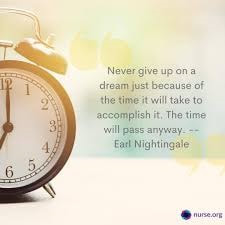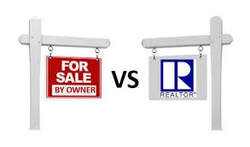 Obviously, I’m not Bill Gates, so I can’t buy every piece of land there is in America, and therefore I don’t have every piece of land to offer through my website alone. Yet there is so much land out there to be found that whatever you’re hoping to find, can be found if you know where to find it. The simple truth is, it won’t all be on any one website. So, I’d like to help you find what you’re looking for. If you’re not finding it through any of the websites listed below, or just don’t have the time to look, then let me know what you’re looking for so I can network with many other investors Nationwide to find what you’re wanting. Believe me, they love it when they hear others say what a buyer is looking for, and they have it! 😊 But, if you’d rather see for yourself what others are posting on various Land Websites, this list just may help in your search. Not every piece of Real Estate is listed through a Realtor, although you will find some Realtors share their listings on some of these sites as well. And, some investors post their properties to more than just one website as well and many have their own website, which is often within their post, or you can simply message them. Sometimes the hidden gem is only listed on just one website either due to time constraints, marketing budgets, or a belief that the site the owner posts to is the one most worthwhile for their ad. The list below consist of some Investor only sites, and others more well known sites for the general public, besides and not mentioning the most commonly used site, Realtor.com which requires a Realtor involvement in practically all postings there. Personally, I find it’s really cool working with investors, and especially those who offer Seller Financing. Remember that saying, "Seek & ye shall find"? That applies to almost everything in life.😉 So, Happy Searching. 😊 AssetColumn.com (Land is mixed in with homes here) BillyLand.com ByOwner.com Craigslist.org eBay.com Facebook.com/Marketplace (Must be signed into Facebook for this to work) ForSaleByOwner.com Land.com Landbidz.com LandCentury.com Landdirectusa.com/land-for-sale LandFlip.com Landgate.com/buy-land LandisHome.com Land-Listings.com Landmodo.com LandSaleListings.com LandSearch.com LandWatch.com LandZero.com LC.Land Locanto.com/g/Land-for-Sale Realestatebees.com Realestate.oodle.com Zillow.com’s hidden For Sale By Owners section, listed under More. By owner & other. It only works if you’re looking under the For Sale category, not Sold category. Select Home Type, then select More, and click on By owner & other. Of course Google just may lead you to many others, as well as Auction websites, Free Classified ad sites (you’ll find some investors prefer Free advertising sites to reduce their marketing expenses, sites such as ClassifiedAds.com, AdLandPro.com, Claz.org, plus there's many more needle in the haystack websites as well). Then again, if you find you just don’t have time, or aren’t finding what you want, let me know what it is and I’ll get to work to see what I can find for you to match your criteria. 😊 Remember, I used to be a Realtor, but thankfully I do not charge a fee or commissions any longer. 😉 If you find this blog post helps you, or if you have anything you'd like to share, please let me know in the comments section below.
0 Comments
 Owning your own piece of land, or more, is so cool❣️ And, it's even better when you make your dreams happen which of course starts with your plans for the land. You may even own land where it’s cooler during the summer or warmer in the winter, so you can travel from one place to another and stay awhile. Maybe even have another property along the way to stop at and enjoy your travels and adventures there too. Just make sure to take lots of photos for the memories you’re creating. It makes it even more exciting to know you’re actually enjoying the time as well. That's what we like to do too. 😊  Once the land is yours, and if you’re not ready to build at that time, then it’s still nice to know that at least you can always visit the area, see your land, walk on it, picnic on it, and even explore and enjoy the area more while you continue to think about all that can be done as your plans unveil, while enjoying the moments you create making lasting memories there. Maybe even plant a tree that doesn't need much attention while you're not there. There’s a popular book by Napoleon Hill titled “Think And Grow Rich”. It explains how everything starts with a thought, and when we begin to imagine what life will be like somewhere and start dreaming about it, then the more we want it the more likely it will be that we'll actually do something to make it happen. As the wheels in your thought process begin thinking about the possibilities and when your desire is strong enough to take the steps to do something about it, then those dreams can and will become reality, based on your determination to see it happen. The more you want something, you’ll find a way around the obstacles. Look at any successful NBA, NFL, NL, or NHL player. They didn’t just get to where they are today by simply thinking. Although, that’s where their dreams began. They took the necessary steps to get where they are today, with determination and action. Envision it happening, planning how it will happen, taking steps to make it happen, and never giving up on what that dream of what is to be. It may take years, but the longer one waits, the longer it’s put off, and we all know what happens if nothing is implemented. I only wish I would have started investing in Land when I was in my twenties. Better late than never, right? Land is a much more affordable place to start, as opposed to feeling defeated because of the economy. Hold your land for at least 2 years if you feel you’d rather sell it and move into another area, so there won’t be any capital gains tax on it too. Heck, you may even be able to trade that land for something else too. Feel free to ask me about this through that Contact tab above. Nevertheless, those who have a dream, and want it to happen will succeed once they put their faith into action in order to get the results they want without giving up. And when you believe in your dreams and you know it's possible, then you can achieve it. That’s how it happens. Education. Desire. Belief. Faith & Action all = Success when there's no giving up. Start with land where you can build on a dream for the possibilities to come, and don’t let anyone stop you. Your mind is where you think, and the land you own is where you can grow. It’s also called affordable Real Estate. 😉 Action + Faith = Results  The saying Seek and ye shall find is not just a Bible verse. It's true with anything in life. Don't ever let someone tell you that you can't make your dreams happen, because You Can❣️ Too many people have proven their dreams happened because of their determination and not by others saying they couldn’t. If they can make their dreams come true, you can too as long as you don’t give up on yourself. 🥰 When limitations are placed on us by or through someone else, it should be all the more reason to prove them wrong. 💪 And when you do, it feels great because deep down, you knew all along that it was possible even though the sceptics said otherwise. If ever something comes to an end, a new chapter in life begins to open for new possibilities to begin and grow. Life is all about learning and moving forward. There is always hope in our future, especially when we do all we can to get where we want to be, despite any obstacles that appear to be in the way or thrown at us unexpectedly. We can still move forward. It's up to us, as to what we make of life, regardless of our age. It's not up to anyone else. Other people may say we cannot do or become something because that's what they believe, but that's not what we need to hear and definitely should not believe. Encouraging others matter. Self-doubt should cause us to seek to find answers, not give in to despair unless we just don't want what we once hoped for. Hope and belief are two different things. You can hope, but you must also believe, and do something in order to make your dreams come true. Make your Dreams a Reality. There's no stopping anyone who seeks to find what they must learn, know, and do, in order to become and have what they really want. It takes time, just as a tree planted is not a full-grown tree right away, but in time will be magnificent, when planted and nourished with what it needs to grow. What matters is what we believe is possible, or not. The choice is ours, but we all start somewhere, no matter where we are in life. If you want it bad enough, seek and ye shall find exactly what you need to get where you want to grow and be.  For people who want to sell the land they’re not using and find a way to gain from their investment is very understandable. But here’s the mistake I see most sellers make, when it comes to seeking out someone who will offer more than anyone else…. 1.) They look at what other people are "asking" for their vacant land thinking that's the price it will sell for. That's not always the price buyers are willing to pay though. Anyone can ask the moon and the stars, but it doesn't mean buyers feel the price is right. Buyers will also look at what others are asking and compare things like road access, utilities, square footage, location, nearby amenities, conveniences, recreational activities, and so forth. So, if you have a desert square out in the middle of nowhere, and someone else wants $79,000 for their lot, that does not mean your lot is worth $79,000, nor is his. We can always ask whatever we want to ask, but again, buyers usually tend to pay what others have paid recently for similar size, and characteristics. Especially when recent sales in that area show around $20,000 to $25,000. Recent sales matter. Price matters. And if there are no recent sales, then buyers may not be interested in that area at all. The more sales, the better. The more people wanting to sell, not so good. 2.) They want what they paid for the land and then some. Well, sometimes it’s best to cut losses if you overpaid to begin with. It’s true that land does not depreciate the way homes do, however land also does not appreciate as fast as homes do either. Wanting what you paid for the land, or wanting that along with all past year property taxes does not mean that buyers think the way you do. Chances are someone convinced you how great it would be to own that land when you bought it, and you saw the potential in it. So you may have paid more due to the emotional factor involved. You're not alone in that. Many people have been promised things that never came to fruition. What's worse is when a developer promises things, takes your money and runs, not fulfilling their obligation to stand by their word. Not so much today, but still, if they promise utilities of any kind, make sure to talk with your attorney first to review matters before agreeing to buy. 3.) They just don’t want to take a loss and are willing to hold out longer. In this case the loss only accumulates to equal more over time in some cases, with property taxes, and possible liens that may be placed on the property. There's no guarantee that things will improve significantly, when it comes to land and the area it's in. Check with your tax advisor, but I’m pretty sure, if there’s a loss, you may benefit somewhat with Uncle Sam. Even donating the land could be a nice tax benefit. 4.) They hold onto the land forever thinking if they don’t ever use it, at least they can pass it along to a family member when they pass away. Very nice thinking and it's something I like to do too. However, I see way too often these kind hearted caring family members do not have a way to ensure their heirs receive the property without a hassle or time-consuming probate if they pass away any time soon. Probate costs a lot more than having a Trust made up which enforces that the designated Trustee, and even Successor Trustee can take over without a problem. It’s a sad situation to hear from relatives that the owner passed away, and they cannot sell the property because it is not in their name, and there was no trust. There may have been a will, but that doesn’t always guarantee that the person who thinks they have a right to the property will get it free and clear, when it comes to the law. It’s best to check with legal counsel before the day comes when you’re called away from earth, after all, once you're gone, there's no turning back to do it then. No one knows when that day will be, so best to prepare now, today, for what could happen tomorrow if you haven't already. Don't think your heirs will know what to do when you pass away. Get all your ducks in a row, before it's too late. 🦆🦆🦆🦆🦆 5.) They don’t negotiate. Often a seller may feel an offer is somewhat acceptable, if only ….. Well, you can fill in the "If only". If only what? There’s a very popular saying that goes, “You have not because you ask not”. So, if you don’t say what is acceptable, how can the buyer see if that works for them too? It could. But buyers would rather hear it from the seller. We all know sellers want more and buyers want less, but there is a point where both parties can agree that is if you really want to sell. So, negotiations are key. 😉 6.) Motivation vs an Emotional Attachment If an owner does not want to sell, then no price will matter to them. If they don’t have a pressing need, then no price will matter to them either. But if a seller does want to sell, or has a need for something that matters more so than the land, then they need to try to remove any emotional attachment to the land if what they want whatever it is that is of more importance and matters more so. And not just focus on the money aspect in terms of greed. But focusing more so on obtaining what does matter for their current situation. 7.) They never did a thing on or to the land, but expect top dollar. If the property was bought over 20 years ago, chances are very likely weeds, bushes, trash, and maybe even homeless people have grown on the land without your knowing about it. After a while it shows that no one cares about the land, and junk starts to accumulate over time. Land does not stay groomed on its own for the most part. So, if you're trying to sell a lot, it helps to remove dead trees and bushes that you may not have even known were there. Get someone in the area to take a photo for you. A clean lot sells better than something that requires a lot of work. 8.) Their thinking is limited to money and how much can they get financially. Yet so many never consider a trade. There could be things of more value than the land itself where a trade may be acceptable. Or perhaps whatever the buyer can afford financially to give along with something more of value. So, next time a deal doesn't seem like it's worth doing, consider what does the other person have to give that maybe you've been wanting for some time. Or something you'd love to pass along to a family member. It could be a nice car, a boat, or anything more of value. It's like thinking out of the box, when you open up to other potential agreements. A title company can always help with this type of transaction as well. So everyone wins! There you have it. These are mistakes I see all too often that land owners make when it comes to selling their land. I’d love to hear your opinions or thoughts on this topic as well.
 It’s an exciting day when you buy the land you want to help make your dreams come true and when it’s all yours! 😊 Then, one day, unexpectedly, until the day you build on your land, you’ll receive an offer in the mail for it. You open it up and first thing you think is “What?!!!” “You want to buy my land for How Much???!!! Are you kidding Me?!!!” All the sudden you may be wondering “Why that price”, or “What’s wrong with the land”, or “Are they just trying to take it from you”??? You may feel insulted. But, you should know it’s not that there’s a problem with your property in most cases. And the offer is simply a computer-generated offer. So, put your frying pan away, for now. LOL. Real Property Values are determined by what buyers actually pay. Not by what others hope for. What’s happening, is that Investors, including myself, look for owners who “Need and/or Want Cash quickly” and those that no longer want to hold onto the property for whatever reason. It could be a hardship, bankruptcy, divorce, hospital bills, rehab/nursing home situation, a need for funeral expenses, a wedding, a bucket list item, a bail release, a desire to invest elsewhere, to buy or build a home elsewhere, or too much debt that needs to be paid, or whatever else it is that causes someone to have a need to cash out on something they’re not using and probably never will. Many times, people inherit a property but prefer money instead since they do not plan to live or build there. Other reasons could be a judgement they need taken care of, liens, and tired of paying property taxes year after year for something they’re not using. Some people just want to be done with the problems they’re facing, or a need they have or want, so selling the unused land can really help. And, the only way Investors can even find these people is to reach out in one way or another to see what response they get. Often that may include someone very upset about the low offer, who wants to take it out on the investor with name calling. But the offer really wasn’t intended for that person. It’s not an investor’s job to hurt anyone. It’s to help someone who needs or wants their help. If the offer is an insult, it’s easier to simply ignore it. So, it’s people who want cash more so than their land that the investor is looking for in order to actually help them. This way no one has to pawn their wedding rings for so much less than their worth, or sell a car or anything else they actually do need either. Land will usually always provide value more so than things in those scenarios rather than waiting long periods of time by listing with a Realtor, which usually results in price reductions later, and possibly hassling negotiations because a buyer isn’t paying you what you want, and then there’s the extra costs on the Seller’s part when a buyer is found that way, if at all. When someone needs cash and decides to sell to a legitimate investor they actually save more without the hassles, wait, added costs, and there’s no guarantee you’ll even get a buyer otherwise. How do you know an Investor is even legitimate? Well, they should be registered with the state they live in or do most business in. If they’re an LLC or other Corporation, you should be able to find them on OpenCorporates.com. From there you can click on the State’s weblink provided for whichever state they are registered in and you’ll find the name of the Manager of that business, who is the one in Authority as Owner to do business, as long as it shows Active. When an investor does buy, the sales price will always be below market value since there are additional costs that the Investor incurs throughout time as well, including all risks associated with taking on the property for however long they have it, including cleaning it up, and whatever else may need to be done on the land. Nevertheless, this creates a win-win situation for both the seller who needed quick cash and for the buyer wanting to save more in the long run. When selling land, it’s always best to use a Title Company, in order to make sure everything is done according to state laws. A Title company serves as a neutral 3rd party, not taking any sides, but making sure all is well and done as promised. However, if the property is only being bought for a few thousand dollars, it’s often best to simply record the transfer directly with the county, to save on costs whereby the Investor is able to perform their own title search making sure all is well, and to help correct any matters that may be standing in the way of allowing the transfer to happen. And of course, once it is recorded at the Recorder’s Office for the county where the property is in, then all is well. The recorder will not allow anything that is not done right, so this is also another way to assure all is well. If the investor is operating under an LLC or other corporate entity, you can always check OpenCorporates.com to see if they’re a legitimate business that is actively registered as a licensed business in order to even perform such transactions. On the other hand, if they’re buying under their own name, then you need to check some type of reference, and do your own search on their name to see what you find. So, now you know why you will get, or are getting a low offer when you know your property is worth more. The good news too, is that if you bought from an investor then you most likely scored a great deal that saved you money with no commissions too! 😊 In other words, you got a good deal, no matter what! Don’t sweat the small stuff. 😉  When you see a photo that interests you it’s always best to visit the property you want to buy beforehand, and not just rely on GoogleEarth, or GoogleMaps Street Viewer. Things change over the years, and it’s always good to see something in person rather than simply hoping for the best. Kind of like seeing a photo of your favorite cake may look delicious, but the taste is what really matters more. Right?. 😉 If someone is selling land and does not allow you time to do your Due Diligence, then you may want to pass on that deal. Everyone who wants to buy any property should be entitled to a reasonable timeframe allowing them to do their homework, make phone calls, ask questions, see the lot, speak with locals, check out the area, and whatever else to make sure they’re going to be happy with their purchase. That is called your Due Diligence. No one should ever be confined to buying without a due diligence period timeframe. And, three days is really not enough time to do everything you need to do. Many Real Estate transactions allow a 10-day due diligence period. I personally allow 15 days, but I’m also flexible and willing to work with the buyer within a reasonable timeframe. Of course, if a buyer who has placed a deposit to hold a property just for them through my website decides not to go through with the purchase after checking everything out, they have my guarantee of a refund on their deposit which was made to simply hold the lot for them only for that time being. Once the due diligence period passes and the buyer is confident that they want to proceed, the deposit then goes towards the purchase price, just as Earnest Money deposit is applied on any other Real Estate Transaction once a due diligence period is over. You may be asking yourself, “Should I get a Realtor to help in this”? Well, that’s really up to you, but it is an added expense that the buyer must pay, and if for some reason you don’t go through with the purchase, and if you signed an Agreement with that Realtor, you may still be on the hook to pay them. So, be careful what you sign. Ask questions. After all they should be there to help you, and not just help their pocketbooks. As a former Realtor myself I can tell you that Realtors are educated on the surrounding areas, and should be able to share helpful tips on utility companies, things to do in the area, as well as help you to understand the process while going through the entire transaction start to finish. Newsflash… >>> Google can help with all of that too, and without the added cost of paying extra for someone in the middle. Realtors are licensed with the State, so they must conform to certain legalities or they could pay substantial penalties. As a former Realtor myself, I now enjoy the freedom to buy and sell land at discounted prices in order to help others save more than what the retail market is asking for properties similar to what I offer. For me, it’s ingrained into my being to disclose what I know because I was at one time a Realtor and know how important it is to be honest with others. Yet on the Realtor’s side of things, it’s their duty to inform you also what they know, but somehow many tend to simply add confusion and more paperwork to the entire process causing you to wonder if it's really worth it. And, it just may be worth it. It all depends on you, and the Realtor. As an investor I am also licensed to do business as a self-owned Corporation. So, my business matters to me, as well as your business with me. Just be sure whoever you work with is legitimate, which you can check out on OpenCorporate.com if they’re an LLC to make sure they're active. If they’re not registered then you may want to either hire a Realtor or check with an Attorney to review the documentation before you sign anything. Signing documents online using an e-Signature source is something that is legal, and obligates you with whatever you're signing, as well as whatever the Seller's responsibilities are which should be indicated within that Agreement. For buyers interested in my properties, I try to simplify the process without all of the unnecessary paperwork requiring you to acknowledge pages upon pages of documentation which only confuses or concerns you even more. I don’t know about you, but simple is always much better than confusion, in my opinion. When I buy aspirin it’s for a purpose. If someone else fainted or got sick from it, then warnings are put on the bottle with dumb things like, could cause headache. What? Those warnings can be good but sometimes make no sense. Neverthless, this acts as a good analogy of what to expect when a Realtor represents you. Basically, if you don’t know what to expect, or not sure of things, you may want to contact a Realtor, so the burden of details falls on their shoulders. If you need a Realtor, I can help refer you to one. It’s not a problem. But that is a buyer’s expense. If you’re new to buying from a property owner, then it is nice to be hand-held through the process by someone else. But is it necessary? Again, that’s up to you. However, I will say if you’ve ever bought a car from a private party with no car salesman in the middle, then it’s basically no different when it comes to buying land from a For Sale By Owner. You just need to know they know what they're doing, and you get what you're promised in the end. That’s what ultimately matters. Honesty, Integrity, and Satisfaction to completion.  I’m sure you’ve heard many reasons why it is better to use a Realtor instead of going with a For Sale By Owner. I’m not here to dispute the reasoning behind that, however, as a former Realtor myself, and now as an investor, it’s easy for me to see why buyers prefer one over the other whichever way they prefer to buy. Many people are just simply not as informed as they can be, yet it's not that hard either, as you'll see here. In most cases it comes down to price. Seller wants more money and Buyer wants to pay less money. But often it comes down to how easy will it be to buy the property that the buyer wants and how fast can they have it without worrying about if it will all turn out right and be what they're hoping for it to be. A Realtor is required by law to adhere to higher standards which should help protect the seller and/or buyer they represent, but it does not mean they are imperfect or all knowing, which is why it costs them so much to become licensed in order to sell in order to help navigate the process of buying and/or selling. Therefore, there will be a lot of paperwork and conditions that also help protect the Realtor, as well as their client, which can be somewhat overwhelming to the client with all of the state required documentations and terminology used that only an Attorney truly understands in most cases. Basically, a Realtor is the middle-person in the entire process, and gets paid through the client's agreement to pay them at the end of the transaction through the Title company or Attorney. A Realtor is to help their client when it comes to negotiations, so you’re putting your trust in what they advise and in what they say and do based on their experience. Although some states do not allow dual representation, whereby they represent both Seller and Buyer, but if the state or Broker does allow it, then there are things the Realtor cannot say or share with the other party which you may be able to find out through a For Sale By Owner or Investor, if they're telling you the truth that is. So, it really comes down to a matter of trust, and you’re always better off researching matters on your own despite who you're working with. Check with neighbors, investigate news sources, contact people you need to be contacting for information from anyone other than someone involved in the transaction. Outside sources are usually not going to lie unless they don't want a new neighbor. Realtors are often used when people do not want to deal with the hassle of advertising their own property for sale or are not sure of the process, and simply feel it's easier to have someone else deal with it all. So a Realtor’s help can be a Huge Plus, but not all Realtors are alike either. Yet, we should never judge a book by it’s cover just because it may look good on a billboard. Realtors pay to make themselves look good. If you’re a buyer looking for properties through any Online MLS provider sites, then no matter what, you will be using a Realtor to buy that property if that’s one you want to buy. A property listed with a Realtor is not something you can buy direct from the owner for slightly less, or any other arrangement as long as it’s listed with a Realtor. Plus, if you're hoping to work something out with the seller without the Realtor, there’s usually a clause within the Realtor’s listing agreement that indicates if the Seller is to sell within a certain timeframe after the end of the agreement, they may still be obligated to pay any Realtor commissions, especially if it is discovered you as a buyer intervened while it was listed. Depending on the circumstance they may or may not still be obligated to pay commissions. So trying to work a deal out with a seller while it is under contract to buy once it’s terminated could hurt the seller, and may have ramifications that could involve you also as a buyer in court. When you understand there are other sources to rely on in order to perform your own Due Diligence, such as the County’s Zoning and/or Planning Department, The Local Utility companies, Inspectors, Neighbors, and Google to help in the research while allowing enough time to make sure you’re satisfied, then why involve someone else? It's really that simple. The property is of more concern to the person involved rather than a middle person who has no intent on buying the property themself. Think about that for a moment. Even with a Realtor representing you, you still have the right to perform your own due diligence and inspections, and whatever else you find helpful so you can determine whether you want to proceed or not. It's not up to the Realtor. It's up to you. A For Sale By Owner or Investor that owns the property for sale, should also allow you the same respect by providing you with a Due Diligence period in which to be sure you are satisfied with your purchase, within so many days of signing the Agreement to purchase. Having a Due Diligence period will helps give the buyer peace of mind for all you discover through that time frame. If it’s not something you want to buy, then if there was any money deposited, it should be refunded to you, unless stated otherwise similar to what you’d find with a Realtor’s contract. Although not all For Sale By Owners or Investors provide a Due Diligence period, so in that case, it’s really up to you to investigate everything before ever signing anything. You should never obligate yourself without being entitled to do your own research. The First thing any buyer should do no matter what, is Always call the County Recorder’s office, sometimes known as the County Clerks Office in some counties, to verify over the phone who the Owner on Record is that has a right to sell that property you’re about to buy. THIS IS SO IMPORTANT! You cannot rely on what is shown online, since the source may not have up-to-the moment recording information, but the County Recorder's/County Clerke's office will. For Sale By Owners and Investors often allow Seller Financing which allows the buyer to buy the property through time by making monthly or quarterly payments, under terms acceptable to the buyer. This helps the buyer to not worry about having to get a loan elsewhere, and without going broke in order to buy it in full right away. On the other hand, properties listed with a Realtor usually require payment in full within whatever is in the agreement. This could lead to complications if the buyer is trying to get a loan for the property, or doesn't have the full funds available by the time it is ready to close. If the buyer cannot perform by paying in full, they could lose their earnest money deposit as well. There are very few banks that will fund buyers for vacant land since most banks prefer to finance homes and people with good credit. A For Sale By Owner or Investor is not as concerned with anyone’s credit when it comes to allowing a buyer to buy what they’re selling, which is an added plus for the buyer. No matter which way you buy, whether using a Realtor or an Investor, also known as a For Sale By Owner, it is up to the Title company or Attorney being used to make sure all meets the State’s legalities when it comes time to close and process all payments in the transaction accordingly. However, if the property being sold is less than a few thousand dollars, it is often simpler to just record through the County Recorder’s or County Clerk’s office once paid for in full, with the Recorded Deed transferring all rights to the new buyer. If recorded this way, you as the buyer, need to be sure you are working with a Reputable Seller who knows what they’re doing, and will do as they say, with proof of every detail throughout the entire transaction. It helps to know that investors who take their business so seriously, that they want to be legitimate in every step they perform, will establish themself as a business entity, such as an LLC, making it a safer way of doing business reputably rather than working with an individual who is not licensed in any way. When a company is licensed as an Established Business/LLC or other Corporate through the state, it means that your satisfaction matters to them otherwise they wouldn't be in business. To see if a business is registered that you should know, you can do so through this link here. Then enter in the name of the company with LLC or whatever is attached to their business, and you will see the state they are registered in. That does not mean they can only do business in that state, but it does tell you which state they are registered in. You’ll often find that Investors buy properties at far less than market prices which helps the seller in need of a fast sale, so the investor can also sell the property for less to someone who feels the market ignores their financial situation. The reasons Investors can do this are numerous, which you can also find through a previous blog post as shown by clicking here. So, when all is said and done, it all comes down to it's simply a matter of choice. What matters most is that you get what you want as agreed to in writing. Then everyone is happy. 😉 For Sellers needing Cash Quickly: For Buyer’s wanting to save money:
For Realtors:
 My intent when buying land from others is to help those who have a need for cash quickly instead of waiting it out and never doing anything on the land that they have no need of. It is never to take without giving, but instead to help when cash is needed more so. After all we all have something to sell that we never use, but much of that may not reward you with what will help more so. Quite often Cash is best when it comes to unused land. And when cash is received in exchange for the land, the cash can help generate more income to buy something bigger or better in order to create the future they’re now wanting. Dreams and plans often change if nothing has been done over the years. If someone owns more than two vacant lots, then they may want to sell one or two of those in order to receive more so that they can actually start to build what they want on the lot they like best. When it comes to selling my properties, it can be like an analogy of an organ doner. Organ doners bring life to others through what they give. And, when someone sells land at a price that makes it affordable for someone else to buy, and usually at less than market value, it brings hope to those who might otherwise not be able to make their dreams of having their own place come true without this benefit. So, it is on both ends of the spectrum that I’m able to help. Cash to the Seller. Seller Financing and Cash Discounts for the Buyer to make it possible to own their own piece of Land in America. 😊  Well, the simple answer is that there is value in the land and always has been. Although there are many things which can affect that value over time, and not all are positive or negative. You may have heard that land does not depreciate. That's only true when it comes to filing your taxes. You can claim depreciation on your home, but not on vacant land, so in that case, Land does not depreciate. But in the real world, it may. Nevertheless, there are many reasons why people choose to sell, since it’s not always convenient to wait till years later to see what will be, when time has other things needing their attention. A few reasons why some vacant land owners sell: 1. They inherited it and have no plans to go there. 2. They had a setback in life financially. 3. Job loss or reduction in pay requiring more to pay bills. 4. An unfortunate medical situation. 5. Bankruptcy. 6. Divorce. 7. To build elsewhere with the funds they receive from one or more lots, to help build on the one they want to live on. 8. To make other investments. 9. To not be bothered paying more property taxes for somewhere they’ve never been and may never go. 10. To be released of any liens recorded against them. 11. Time got away and now there are no plans to build as it sits unused year after year. 12. City or Town letters demanding cleanup of the lot for accumulated trash and overgrown vegetation or be fined. 13. To start a new business where they want to live. 14. Sometimes some people just don’t care about it any longer. The thrill is gone. Onto something they can use. 15. To provide the money needed to fulfill their Bucket-List items and destinations for a life worth living. I’m here to help those who want a way out with the cash the land can provide rather than leaving them with dirt they have no need for. But, if your situation does not warrant a need to sell, then there’s no need of concern. |




